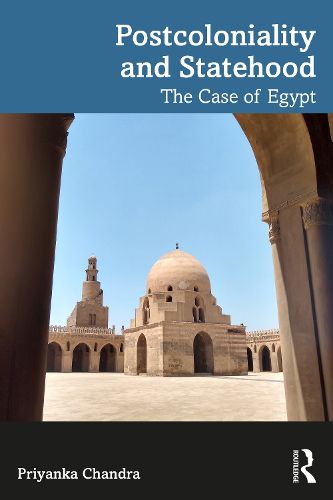Readings Newsletter
Become a Readings Member to make your shopping experience even easier.
Sign in or sign up for free!
You’re not far away from qualifying for FREE standard shipping within Australia
You’ve qualified for FREE standard shipping within Australia
The cart is loading…






This book traces the evolution of the postcolonial state and the social contract in Egypt. It problematises two of the most ubiquitous and contentious terms: democratisation and development, within the context of Egypt and the larger Global South. It also subverts western-centric ideas of global politics to examine why certain aspects of Egypt's history and policies have received more attention than others.
This volume presents a study of state-society relations, the shift to Infitah, the impact of neoliberalisation from 1970 to 2011, and social responses to it. It argues that the Arab Uprisings of 2011 were not isolated events, but a result of a longue duree political- economic history. Through the prism of postcoloniality, it shows how citizenship is constantly renegotiated in view of the ongoing neoliberalisation, and the impact of such social transformations on the nature of the postcolonial state. It juxtaposes the role of the state and society against global political and economic landscapes to address the larger question: what is the nature of the postcolonial state?
This book will be of interest to a wide array of scholars and researchers from politics and international relations, sociology and social anthropology, social theory, postcolonialism and Global South studies.
$9.00 standard shipping within Australia
FREE standard shipping within Australia for orders over $100.00
Express & International shipping calculated at checkout
This book traces the evolution of the postcolonial state and the social contract in Egypt. It problematises two of the most ubiquitous and contentious terms: democratisation and development, within the context of Egypt and the larger Global South. It also subverts western-centric ideas of global politics to examine why certain aspects of Egypt's history and policies have received more attention than others.
This volume presents a study of state-society relations, the shift to Infitah, the impact of neoliberalisation from 1970 to 2011, and social responses to it. It argues that the Arab Uprisings of 2011 were not isolated events, but a result of a longue duree political- economic history. Through the prism of postcoloniality, it shows how citizenship is constantly renegotiated in view of the ongoing neoliberalisation, and the impact of such social transformations on the nature of the postcolonial state. It juxtaposes the role of the state and society against global political and economic landscapes to address the larger question: what is the nature of the postcolonial state?
This book will be of interest to a wide array of scholars and researchers from politics and international relations, sociology and social anthropology, social theory, postcolonialism and Global South studies.